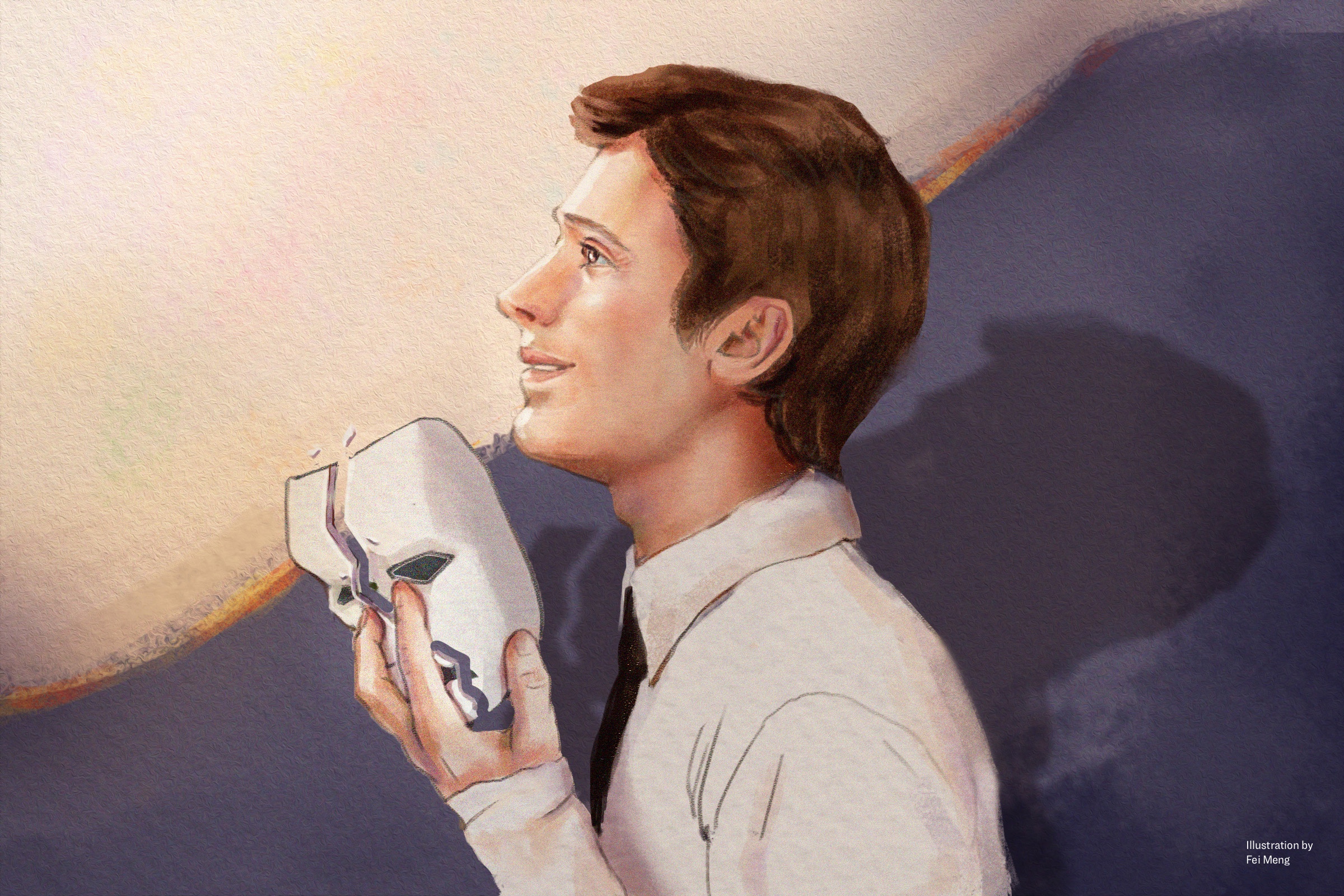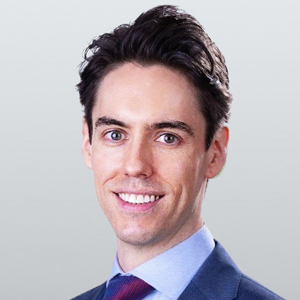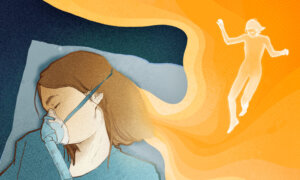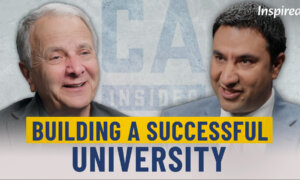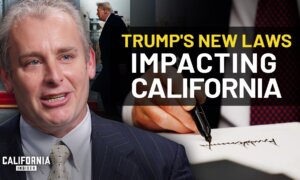Dr. Jonathan Corson was known not only for his medical expertise, but also for the somewhat unconventional advice he provided alongside his prescriptions. Recently, he began sharing with his patients how cultivating virtues, such as gratitude, could significantly ease their health problems. This blend of philosophical guidance with medical practice had earned him both admiration and skepticism.
As he left his office one day, Corson felt exhausted after a week of nonstop work and little rest. Grappling with one of his unyielding migraines that medication seemed unable to touch, he found himself pondering his own advice. The throbbing pain reminded him of his human frailty and that, even as a doctor, he was not immune to illness. This acute discomfort prompted a profound self-reflection unlike anything he had previously experienced.
Corson took great pride in his ability to listen and offer advice for what went beyond physical symptoms, daring to delve into the moral and ethical aspects of his patients’ lives. But as he reflected, a nagging question surfaced: “Am I practicing what I preach?”
The realization hit him hard—perhaps his migraine was more than just a physical ailment. Could there be a connection between his current state and the virtues, or lack thereof, he discussed so often lately at work?
Confronted with continual requests and responsibilities, Corson often overlooked minor details with patients, made unrealistic promises to his family, or simply told people what they wanted to hear. Little by little, owing to pressure to perform, he had found that pride, self-interest, and even superiority toward others prompted him to take shortcuts. “Could it be that honesty is lacking in my life?” he wondered.
Corson decided it was time to embark on a personal journey toward greater honesty—both with himself and others.
He began documenting each time he was dishonest or misleading and would later reflect on how he could improve. He also dove deep into scientific literature on the health benefits of honesty.
Tension Fades Away
As he opened his heart to the transformative power of truth, Corson discovered a deeper sense of well-being and a renewed purpose in his work. He felt a direct association between health and virtue.
After a week or so, he was on his way home when he realized, “I haven’t been having those annoying headaches!” These “pain storms,” as he called them, were something he had accepted as a typical part of life. He realized that though he had only just begun to focus on practicing honesty, it had already reduced his baseline stress levels.
A 2010 study from the Columbia University Graduate School of Business demonstrated that brief periods of dishonesty can spike cortisol levels, the body’s primary stress hormone. Cortisol prepares the body to fight or flee from perceived threats, meaning that when a person lies, their body reacts as though it is bracing for confrontation or escape. The research highlights how lying triggers a measurable physiological stress response, underscoring the body’s innate sensitivity to dishonesty.

Honesty decreases stress. (Illustration by The Epoch Times)
In times of danger, the high-octane energy release of cortisol can help the body do extraordinary things. However, humans are not meant to live in such a state day in and day out. Over time, stress hormones can tax the cardiovascular system, increase inflammation, and potentially cause migraines such as those Corson experienced.
The human body is an extraordinarily finely tuned biological system. Yet, just as excessive strain on machinery can cause wear and tear, pushing the body beyond its limits can lead to breakdown.

(Illustration by The Epoch Times)
The Brain’s Natural Honesty
Before, Corson often “bent the truth.” He often told his wife he would be home by a certain time but would arrive later than promised. At work, he occasionally told patients he had personally reviewed their lab results “first thing this morning,” when he had only skimmed them minutes before the appointment. He once told his daughter he could not attend her soccer game because he was working overtime—knowing full well he could have attended if he wanted to. In reality, he was exhausted from a long week and wanted a quiet evening to himself, reasoning that missing one game wouldn’t hurt, and he'd make it up to her later.
Now, things were different. He began pausing for a moment before speaking, checking whether his words were sincere and representative of his actions and feelings.
As Corson’s authenticity with others grew, he began to speak more freely—a task not without challenges. To his surprise, he found that his self-respect and connections with others were more than compensation. Moreover, he finally felt that he was living a more authentic life.
Corson’s newfound freedom flourished after he decided to stop lying.
In a landmark study published in the journal NeuroImage in 2002, scientists measured subjects’ brain activity while asking them to lie or tell the truth. Participants were first shown a specific playing card—two of hearts, for example. Later, when presented with another card, they had to respond whether the card was the same, saying “Yes,” or different, saying “No.”
When the subjects lied, they showed the same brain activity as when telling the truth, owing to the brain’s activation of recalling the truth. However, they also displayed activity in two key regions involved in self-control. People think of the truth first, but in lying, that truth is inhibited.
This suggests that being truthful is the baseline cognitive state. Lying requires additional cognitive resources, leading to increased mental strain and potential health implications.

Example of the experiment where subjects were shown cards and asked to lie or tell the truth. Brain images are slices of the brain, from top to bottom, showing what activity was uniquely present during lying. Langleben et al. Brain Activity during Simulated Deception: An Event-Related Functional Magnetic Resonance Study. Neuroimage 2002. (Courtesy of Daniel Langleben)
While speaking with a neuroscientist colleague, Corson further learned why concealing the truth is exhausting. He was told that networks in the brain, connected to our dorsolateral prefrontal cortex (DLPFC), control our behavior and critical thinking.
However, the DLPFC’s resources are limited—that is, if we expend energy trying to be deceitful, there may actually be less fuel for problem-solving and creative thinking. This is why, after a long, hard day, people often become less self-controlled, to the detriment of others.
Types of Lies
Research shows there are different types of lies, as demonstrated by a 2003 study published in Cerebral Cortex that explored the neural mechanisms underlying various forms of deception.
Some lies can be invented on the spot, such as lying about what you had for lunch. Other lies can be crafted and memorized, such as lying about a trip to the Bahamas you never had.
The more significant the lie, the greater its toll on your mind and body. Lying demands that you remember the lie’s context, implications, end goal, whom you said it to, and when.
Lies that require spontaneous deception to substantiate a previous lie strongly activate the anterior cingulate gyrus (ACC). For example, if asked why you were late and you quickly invent a traffic jam story despite actually oversleeping, your ACC works hard. This part of the brain inhibits our natural inclination to tell the truth and requires extra cognitive energy to maintain the lie, ensuring it sounds believable and consistent with any follow-up questions.
Made-up scenarios, such as the fabricated Bahama trip, significantly activate the DLPFC and are more mentally taxing than telling a simple lie because you have to cross-check and ensure the fabrication is coherent.
In short, deception comes at a considerable cost, while being truthful allows you to be worry-free, trusting, and free of anxiety.
Productivity and a Life Worth Living
Each day, Corson began to find he had a little more energy when he left the office. He once remarked: “Who knew that just sitting and thinking could be so exhausting? Even though I’m just sitting at a desk, I feel like I put in a day of hard physical labor!” Before, he said, he was usually too “wiped out” to play with his daughter. Now, he found himself more creative, playful, and engaged at work and home.
Enjoying a better quality of life, Corson began to share his story with others. One day, he spoke with his medical billing specialist, Frank, saying, “I’d bet people who are honest see the doctor less often—someone should run a study.” Frank remarked, “I believe that’s true,” and referred him to a 2022 study published in Social Psychiatry and Psychiatric Epidemiology, which analyzed insurance claims and found that moral character was linked to lower rates of depression and more positive mental health outcomes.
At the end of a particularly long day, Corson leaned back in his office chair. The weight of his responsibilities lifted as he recognized the subtle but profound shift in his life.
“If the mere act of being honest alleviated my stress and, by extension, my migraines, what other potential lies within the realm of virtue?” he wondered.
As he prepared to leave for the day, a gentle smile graced his lips. He turned off his office lights and stepped into the fresh evening air. As he drove under the twilight, he was not just heading home—he was heading toward a life that was more honest, healthier, and ultimately, more whole.
--
Author’s note: Today, we face unprecedented challenges in society, medicine, and the workplace. This story is based on a composite of our colleagues and medical professionals. The challenges and rewards represented therein are real. With ever-more pressures to self-present, beat the clock, and keep up with society’s developments, many struggle with moral dilemmas and inauthenticity. We believe that the truth will really set you free!
Share Your Story: health@epochtimes.nyc
Have you experienced personal transformation or improved health through cultivating virtues? Please share your experience with us.



